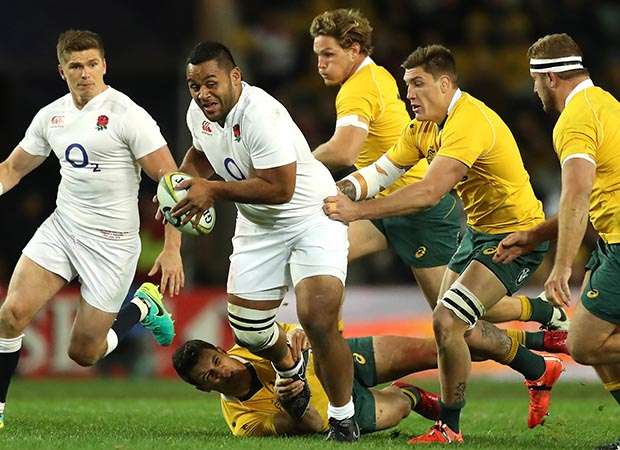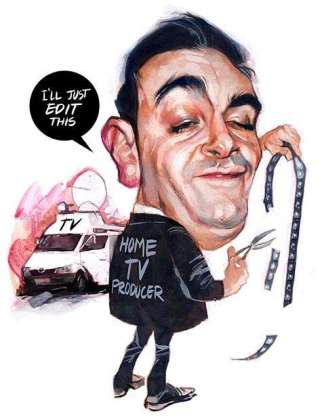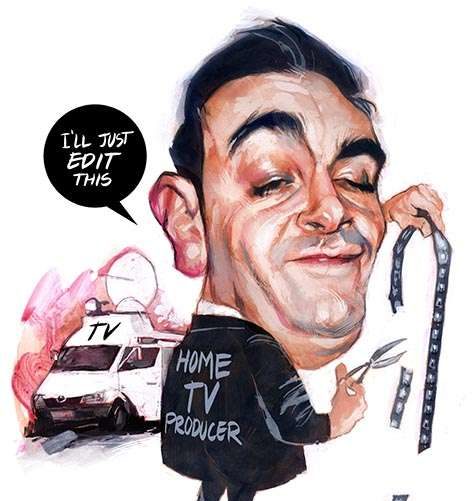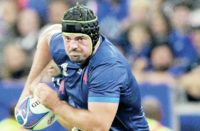 Partisan television coverage in which host broadcasters lose the capacity to be objective is a growing problem for Rugby Union. The ‘dirty-tricks' antics of Fox Sports on
Partisan television coverage in which host broadcasters lose the capacity to be objective is a growing problem for Rugby Union. The ‘dirty-tricks' antics of Fox Sports on
England's recent tour of Australia highlighted this blight on the sport, with one item after another aimed at supporting the Wallabies by undermining Eddie Jones and his Red Rose tourists.
The grubby Stephen Hoiles' attempt to get under Jones skin backfired spectacularly, but it was part of an orchestrated campaign. One of the most laughable offerings came when the England scrum was being targeted by Fox's array of former Wallaby commentators, with Phil Kearns leading the charge by claiming that England were cheating.
The former World Cup-winning hooker pointed out how England tight-head Dan Cole was illegally angling inwards to disrupt the Wallaby scrum. The big hitch was that not only did the angle of the arrow superimposed on the scrum footage strongly exaggerate the inward direction in which Cole was pushing, the analysis completely ignored that the Wallaby loose-head he was opposing, Scott Sio, was angling-in on the England scrum at almost 90 degrees.
To be fair to Kearns he wasn't the worst offender, but former internationals in commentary boxes do themselves few favours if they abandon journalistic objectivity and merely become home fans with microphones.
Fox's array of former stars could do with a tutorial from John Eales, the peerless 1999 Wallaby World Cup-winning captain whose balance and perception as a commentator mirrors his playing skills.
The Aussies are by no means the only offenders. French TV coverage of the game is renowned for the ability of “home” producers mysteriously to lose footage of incidents which might adversely impact on France, or French club sides.
You will wait in vain as a journalist covering a Six Nations game at the Stade de France for any action replay detrimental to the interests of Les Bleus to be shown on the stadium's big screens, let alone be relayed to the millions of armchair viewers.
 It's become so bad on the other side of the Channel that when my old mate Stuart Barnes is using the French camera feed while commentating on matches for Sky he usually adopts the verbal equivalent of the Gallic shrug towards the home broadcaster's censorship of any incriminating evidence. As another killer shot is suppressed you will regularly hear Barnes say, “we're not expecting to see that angle again”.
It's become so bad on the other side of the Channel that when my old mate Stuart Barnes is using the French camera feed while commentating on matches for Sky he usually adopts the verbal equivalent of the Gallic shrug towards the home broadcaster's censorship of any incriminating evidence. As another killer shot is suppressed you will regularly hear Barnes say, “we're not expecting to see that angle again”.
One of the most controversial incidents of unavailable camera angles came in the epic second Test of the 2009 Lions tour of South Africa. When the world champion Springboks staged a second-half comeback with the match in Pretoria reaching a crescendo, the TMO was left in limbo over whether Jaque Fourie had scored a legitimate try.
This was because, with the Springbok centre gang-tackled into touch as he grounded the ball, touchline footage from the back as well as the front was crucial to the TMO making an accurate decision. Surprisingly, the coverage from the touchline camera behind Fourie – which would have shown whether his legs or feet were out of play when he touched down – never saw the light of day. It proved to be crucial, with South Africa scrambling home 28-25 to clinch the series.
One of the problems is that the production teams working for host broadcasters will predominantly be from that country, and therefore subconsciously want their country to win. Although the examples cited here have pointed the finger at Australia, France and South Africa – and I make no apology for that – it would be naive to assume that they are the only offenders.
Australians still feel aggrieved, for instance, at the contentious Dan Luger try when the England wing scored eight minutes into injury time to give them a 22-19 victory over the Wallabies at Twickenham in 2000. The debate over whether Luger grounded the ball cleanly, or nudged it forward before
getting downward pressure, is resolved only in the record books – and, for the record, it was the try that launched Clive Woodward's unsurpassed winning run as a Northern Hemisphere coach against the Southern Hemisphere big three.
However, while there will always be controversial incidents, the outright bias now being shown by host broadcasters has got to be checked.
As one TV insider told me recently: “We have fallen a long way from objectivity in production, commentary and analysis in recent years as Rugby Union moves more towards entertainment – and national unions wanting broadcasters to get behind their teams.”
That trend has to be reversed if the values of respect for your opponent, and playing the game with integrity, are to be maintained. There may be an element of comedy about some of the excesses, but it is not as funny when you are a referee or TMO with a difficult decision to make and no TV footage forthcoming in a match watched by millions of rugby fans.
My solution would be to appoint an independent TV watchdog for each international match in an attempt to re-establish best practice. While the practicalities of match production mean that the watchdog would be unable to intervene with the replay feed to TMOs during a match, they would act as a regulator in overseeing and assessing the quality of the footage provided by the host broadcaster.
The only body with the authority to make this happen is World Rugby/IRB, and they should act now to nip the growth of broadcasting bias in the bud.


























